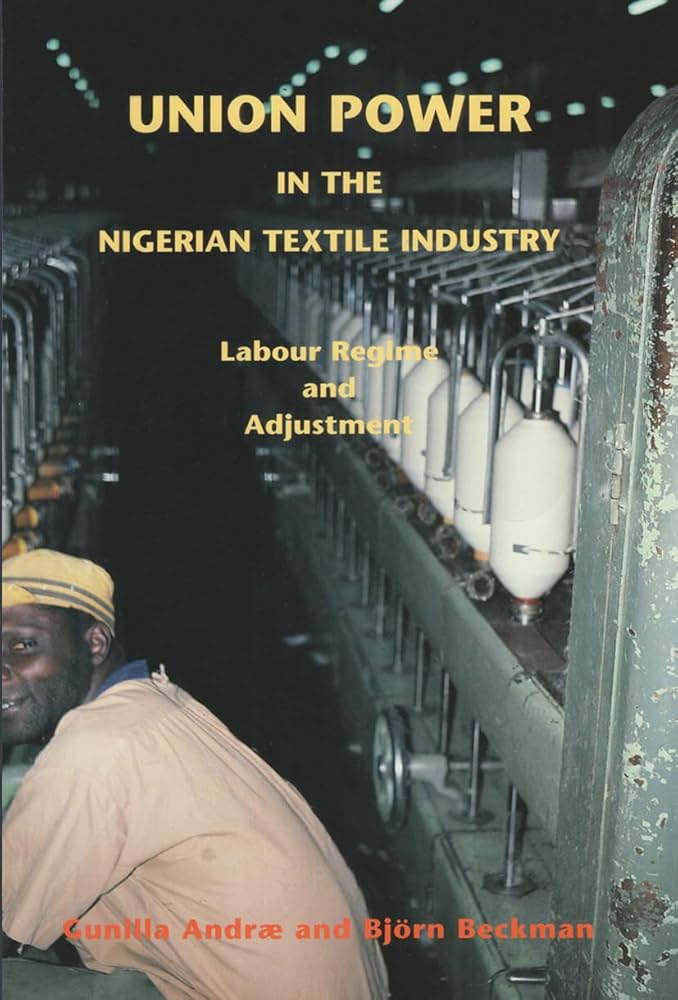The focus of this book is on the trade unions, their role in industrial restructuring and their ability to defend workers’ interests and rights. Despite the unfavourable conditions in Nigeria’s macro-economy, huge financial losses of textile firms and large-scale retrenchment, Björn and Gunilla demonstrated that a union-centred labour regime helped to stem the process of de-industrialisation and erosion of the bargaining power of unions and workers’ wellbeing.
Union power in the textile industry is derived from the relative autonomy of workers in the production process. This has three features: the high educational status of the workforce; the existence of small-holding agriculture, which offers alternatives to industrial work; and the nature of pre-industrial forms of labour control.
To read this book, click this link: https://ivavalleybooks.com/wp-content/uploads/2025/06/Union-Power-in-the-Nigerian-Textile-Industry-Labour-Regime-and-Adjustment-Andrae-Gunilla.pdf

